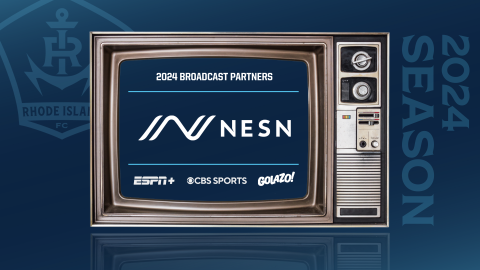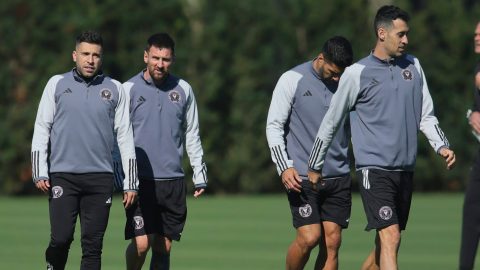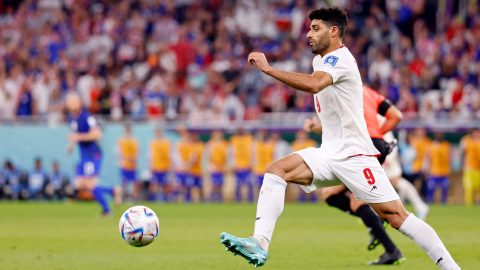 Though the statistics aren’t always so clear, the best guess we have right now is that anywhere between 2 to 10 percent of the human population can be identified as homosexual. During the 2012 seasons, 4,000 athletes spent time on the roster of one of the teams within America’s four major team sports.
Though the statistics aren’t always so clear, the best guess we have right now is that anywhere between 2 to 10 percent of the human population can be identified as homosexual. During the 2012 seasons, 4,000 athletes spent time on the roster of one of the teams within America’s four major team sports.
Do the math.
“Any professional athlete who gets on TV or radio and says he never played with a gay guy is a stone-freakin’ idiot,” said the eminently quotable Charles Barkley in 2011. “I would even say the same thing in college. Every college player, every pro player in any sport has probably played with a gay person.”
The best thing about Barkley’s comments were his apparent exasperation with the topic, because really that’s the only appropriate reaction to the issue of gay athletes being, well, an issue — exasperation. As Barkley aptly points out, people who identify as LGBT in 2013 are just too numerous to not come into contact with on a day-to-day basis.
However, when looking at the numbers above, it absolutely begs the question as to why we are yet to see an athlete in one of the four major league sports come out, and only a few athletes in any sports have made such an admission. Although it’s utterly frustrating to look at the facts and realize that many, many people are likely willfully hiding their identities every day of their lives, we don’t have to look too far to understand just why people like Robbie Rogers live 25 years of their life before gaining the courage to simply be honest about who they love.
To understand the pervading homophobic culture in sports, we have to look no further than players like Brandon Spikes, Torii Hunter, DeSean Jackson, Manny Pacquiao, Tim Hardaway and a litany of others who have made their regrettable worldview be known.
Before going any further, to a certain extent it’s unfair to try and speculate why Rogers hid his identify for so long. We don’t know him, and all we have is about 400 words of a blog post to encapsulate a lifetime’s worth of internal struggle. More to the point, he only credits his career in soccer as an “escape” for him, and didn’t cite any struggles with teammates or the sport for keeping him in the closet.
However, we do know that Rogers struggled with being honest about who he is to the people closest to him. We know that a great deal of his life was spent pursuing soccer at the highest level. And we know that, as another NESN scribe put it earlier on Monday, Rogers felt it necessary to escape from his on-field escape, for whatever reason.
So, without making this a referendum on Rogers, specifically, this seems like absolutely the perfect time to talk about the homophobic culture that still pervades sports.
To draw an analogy, bullying has been the de jour social cause for about a year now, and we pretty much all agree that day-to-day intimidation is not a healthy thing. Yet when an athlete speaks out against gays or the idea of having a gay teammate, it’s often dismissed as that athlete exercising their free speech or something along the lines that they’re entitled to their opinion.
This is no longer a tenable excuse, as these athletes are just as guilty of bullying their gay teammates as any 10-year-old who beats up a weaker kid for their lunch money.
In short, Spikes can claim that his tweets comparing his fear of spiders to his fear of a gay teammate in the shower are in jest all he wants. However, that is a complete B.S. excuse, and Spikes has shown himself to be the worst kind of bully — the kind who picks on people who aren’t in a position to defend themselves.
More to the point, how do you think a homosexual member of the New England Patriots would feel upon seeing Spikes’ tweets? Undoubtedly, it’s this kind of behavior that makes the likely dozens of gay athletes in major league sports continue to hide their identity, and struggle with being honest about their identity in a locker room situation which is supposed to be about teammates and camaraderie.
And, unfortunately, Spikes is just one of a multitude of athletes who have taken on the role of anti-gay bully.
Hunter, for all the credit he’s gotten over the course of his career as a clubhouse leader, didn’t show much leadership to a potentially gay teammate when the outfielder said he’d be uncomfortable with a homosexual in the locker room. Likewise, for Pacquiao, who gave the ultimate of non-apologies, saying that he doesn’t actually hate gay people, he just believes their love is sinful and will be punished by his god with eternal damnation.
Really, we could go on and on, but the message is simple: Every time an athlete espouses their anti-gay rhetoric, it does much, much more harm to the comfort level of a gay athlete than all the supportive words (such as those received by Rogers via Twitter) in the world help. And there are lots and lots of examples of athletes making their bigotry public.
Now, the light at the end of the tunnel in this issue is that the homophobes are losing, and anti-gay views will soon (mostly) become a relic of the past along with Archie Bunker. However, gay athletes in the here and now still face an epic struggle, and it’s important to note not only just how many are probably out there, hiding their identity, but the culture that makes them hide.



